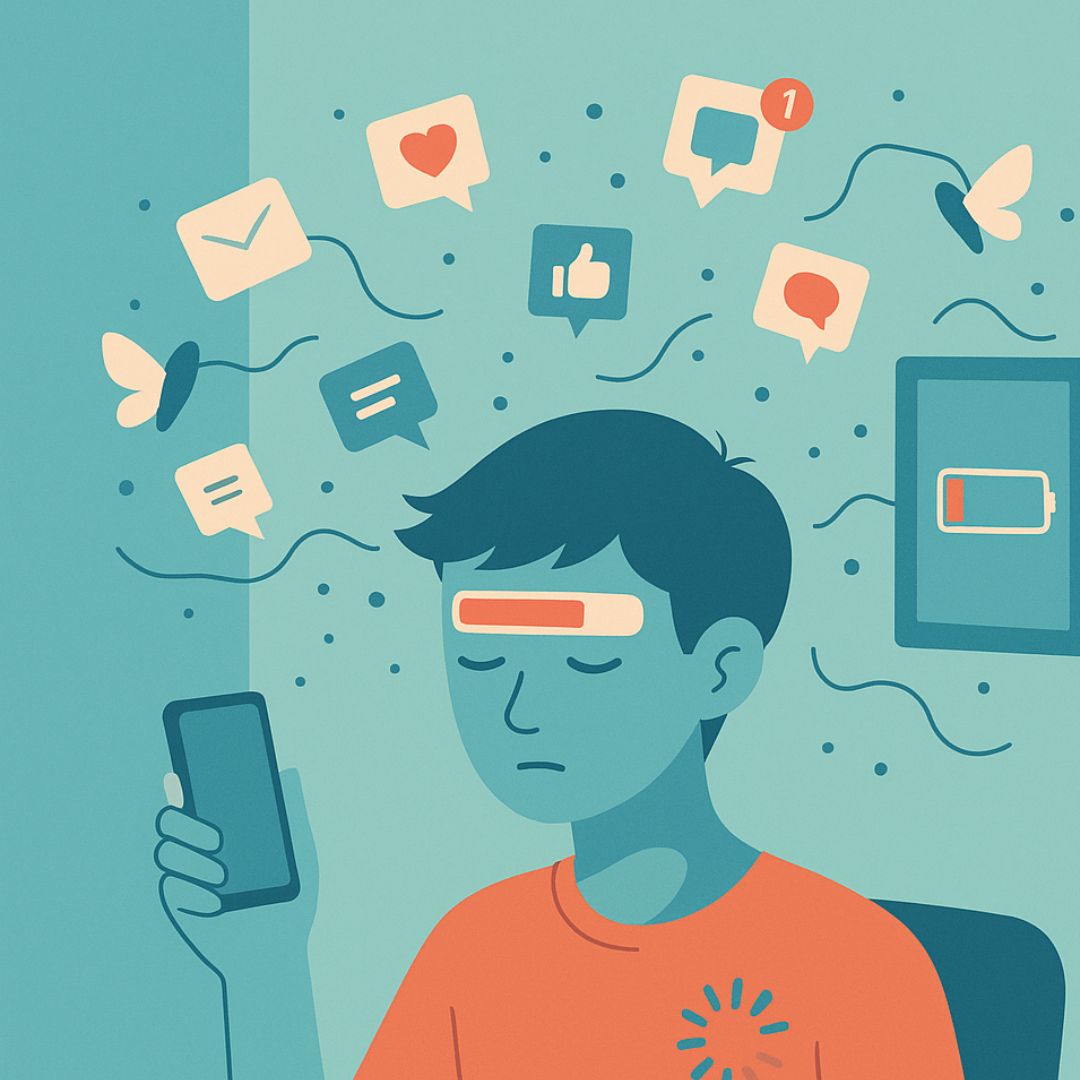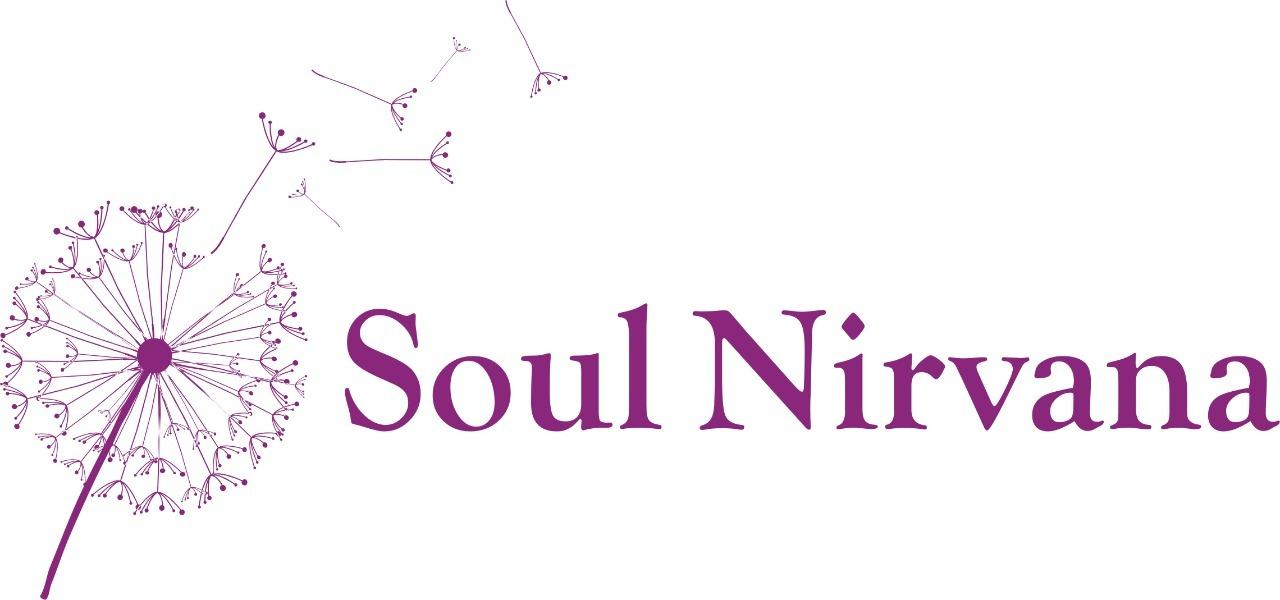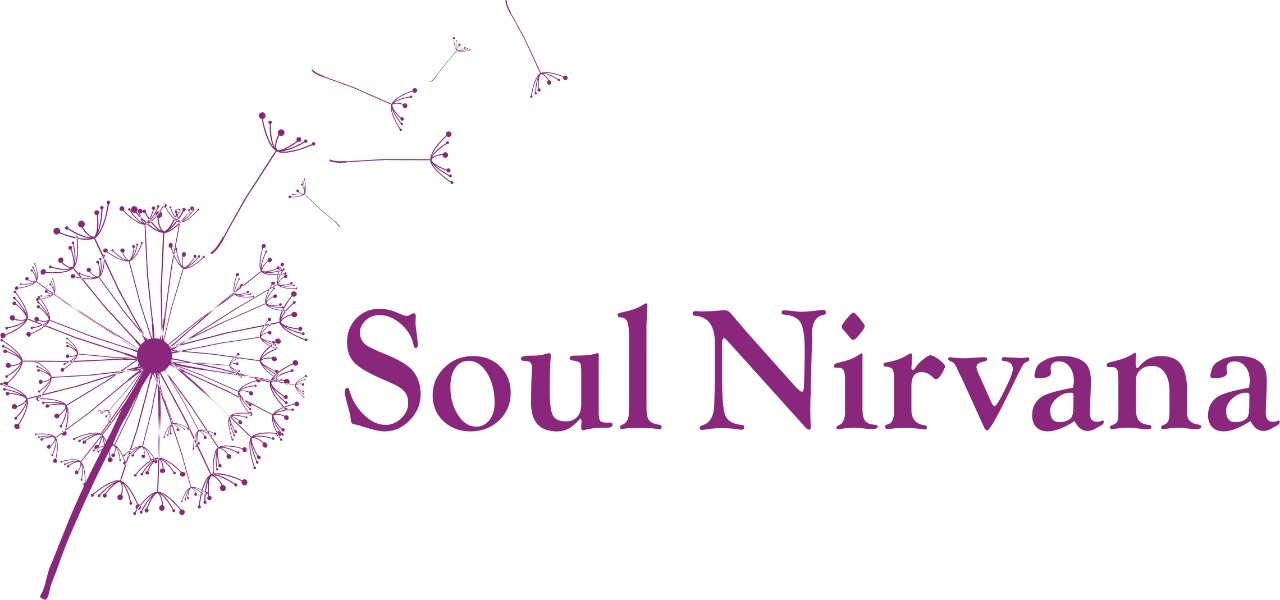Digital Burnout and Attention Fatigue Among Teens

Imagine a teen sitting with their phone in one hand, laptop open for homework, Instagram open, messages buzzing—and then, “I just can’t focus,” they say. Their eyes feel tired. Their thoughts keep skipping. They know they should study, but everything feels fuzzy.
This is more common than many realise. In today’s screen-filled world, teens are at risk of something called digital burnout and attention fatigue. This doesn’t mean they are lazy. It means their brain and body are telling them: “I need rest.”
In this post, we’ll talk about what these terms mean, why teens are especially vulnerable, what signs to look for, and what simple steps both teens and grown-ups can take.
What Is Digital Burnout & Attention Fatigue?
Digital burnout is when the constant use of screens, apps, notifications, multitasking and online demands stop being fun and begin feeling heavy—like your brain is “on” all the time and never gets a break.
Attention fatigue is when you want to focus, but you can’t. Your mind wanders. You jump between tasks. Things that used to hold your focus don’t any more.
These happen when screens overload our attention, our rest, and our ability to switch off. Studies show that teens with high digital use report more tiredness, weaker focus and more emotional strain.
Why Teens Are More Vulnerable
Teens face special pressures when it comes to screens:
- Their brains are still growing and learning how to handle big loads of information, multitasking and online demands.
- They often use multiple devices at once—phone, laptop, gaming—making attention jump around.
- Social media, constant notification pings, never-ending feeds make it hard to stop.
- Sleep gets messed up when screens stay on late, or when the brain is still processing online stuff at night.
- Research confirms that high digital use in teens links to attention problems and fatigue.
Signs That You (or a Teen You Know) Are Experiencing It
Here are things to watch out for:
- Feeling mentally tired even after sleeping.
- Trouble finishing tasks. You start homework, then switch apps, then lose track.
- Your attention “skips.” You start reading, then check messages, then scroll.
- Headaches, eye strain, heavy eyelids when using devices.
- Mood changes: Irritability, feeling “on edge,” having less patience.
- Saying “I can’t switch off” or “My brain won’t stop.”
- School performance dropping, disinterest in hobbies, avoidance of social time.
If many of these ring true, it’s not “just a phase”—it’s a signal.
What Happens When It’s Ignored
When digital burnout and attention fatigue persist, they can affect more than just screen time:
- Difficulty staying focused in class, doing homework or reading.
- Larger gap between what you want to do and what you actually do.
- More stress, anxiety, frustration.
- Poor sleep leads to worse mood, less energy, and less motivation.
- Social withdrawal: preferring screens because real-life interactions feel harder.
- In short: ignoring the signals makes life harder, not easier.
Simple Strategies for Teens & Parents to Recover and Restore
Here are practical, everyday steps you can try:
Create “screen-down” zones and times
- No screens for 30 minutes before bed.
- A tablet-free zone in the house (for example the dinner table or bedroom).
Use the “one-thing-at-a-time” rule
- Avoid multitasking—pick one task, finish it, then move to the next.
- Fewer context switches = less fatigue.
Build mini breaks from screens
- After 30-40 mins of screen work, take a 5min break away from devices—stretch, walk, look outside.
- This refreshes attention.
Sleep and rest matter
- Keep device lights low at night.
- Try reading a book or doing something offline before bed.
Engage in offline attention-restoring activities
- Nature walks, drawing, playing a musical instrument, face-to-face chats. These help your brain recover.
- Research on “attention restoration theory” suggests nature and slow activities help restore focus.
Talk about it
- If you feel tired all the time, tell someone—a parent, counsellor, friend.
- Sometimes just naming it helps you notice changes and act.
When You Might Want Extra Support
When screen-use and fatigue get serious:
- If focus problems continue despite breaks and limits.
- If mood, sleep, interest in life drop significantly.
- If you feel you can’t stop using devices even though you feel worse after.
- In these cases, professional support can help you and your family build healthier habits and understand deeper patterns.
Conclusion
Digital burnout and attention fatigue among teens are real—and not something to ignore. While screens offer many good things, when they take over without balance, our minds and bodies pay the price.
The good news: you can restore attention, feel more in control, and enjoy both digital and real-life experiences with balance.
Digital burnout is real, but it’s also manageable with the right support. SoulNirvana offers caring guidance through our Personalized Therapy Care Plan, helping teens rebuild calm, focus and healthier habits.
If you’d like help doing that, you don’t have to do it alone. You can book a session now to talk about how to restore focus, set healthy digital habits, and feel more at ease in your mind and life.
FAQs
1. What exactly is attention fatigue from screens?
It’s when your mind wants to focus but can’t—because it’s been overstimulated, jumped around too much, or never given rest.
2. How many hours of screen time lead to burnout?
There’s no magic number—it depends on what you’re doing, how your body copes, whether you rest. If you feel tired, check signs more than counting hours.
3. Can a teen recover their attention span?
Yes. With rest, focus practices, offline breaks and good habits, attention improves.
4. When should parents get professional help?
When screen time changes start harming sleep, mood, school, relationships—especially if the teen doesn’t seem able to shift on their own.
References
- Kumar, P., Joshi, A., Udayai, K. (2025) Digital Burnout among Adolescents: The Darker Side of Technology. Journal of Neonatal Surgery. mail.jneonatalsurg.com
- “Digital Fatigue and Adolescent Mental Health.” IJIS. 2025. International Journal of Social Impact
- Dhir, A. (2018) Online social media fatigue and psychological wellbeing... ScienceDirect. ScienceDirect
- “Understanding Digital Fatigue: Why Kids Are Tired of Their Screens.” CyberSmarties. Cybersmarties

Ms Sonali Sikdar
Ms Sonali empowers individuals to grow, heal, and align their careers with their inner calling.
Related Blogs
No related blogs available.

